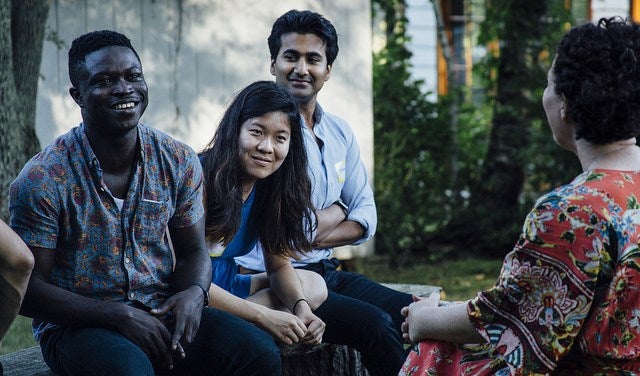The way Shadrack Frimpong talks about his work transports you directly into the story; he’s a natural communicator and born leader. Frimpong was a member of the University of Pennsylvania class of 2015 and participated in the Social Impact house that same year. The first generation college graduate founded a nonprofit organization–Cocoa360–in his hometown of Tarkwa Breman, Ghana. Frimpong recently returned to the States to pursue a course of study in nonprofit leadership, public health, and medicine. He talked to us about the challenges facing children and families in rural Ghana, and how Cocoa360 builds on the community’s strengths to tackle these challenges and raise a new generation of leaders.
Frimpong believes that “number one, innovation [happens] when something makes you angry, and number two, innovation comes from something that makes the heart of the people you’re serving beat.” He knows the importance of keeping your community at the center of what you are doing, and that “an idea…will only thrive when the community you’re serving cares deeply about the cause you’re pursuing and [is] willing to be at the forefront of that pursuit.” Frimpong grew up in rural Ghana, where his parents have been cocoa farmers for over 40 years–and what made him angry were the stark inequalities in the cocoa industry: Cocoa farmers live on 50 cents a day, while Ghana pulls in $2 billion in cocoa export revenue every year. “That was my anger point,” he says. “That was the innovation point.”
As an undergraduate studying biology at Penn, Frimpong was interested in science and healthcare, and worked on biomedical research. While he has taken a break from the field of medicine, he says that the skills he learned as a biology major have translated into the work he’s doing now. “All those experiences, what they essentially taught me was that you question everything, you’re curious about everything, you don’t take anything at face value,” he says.



